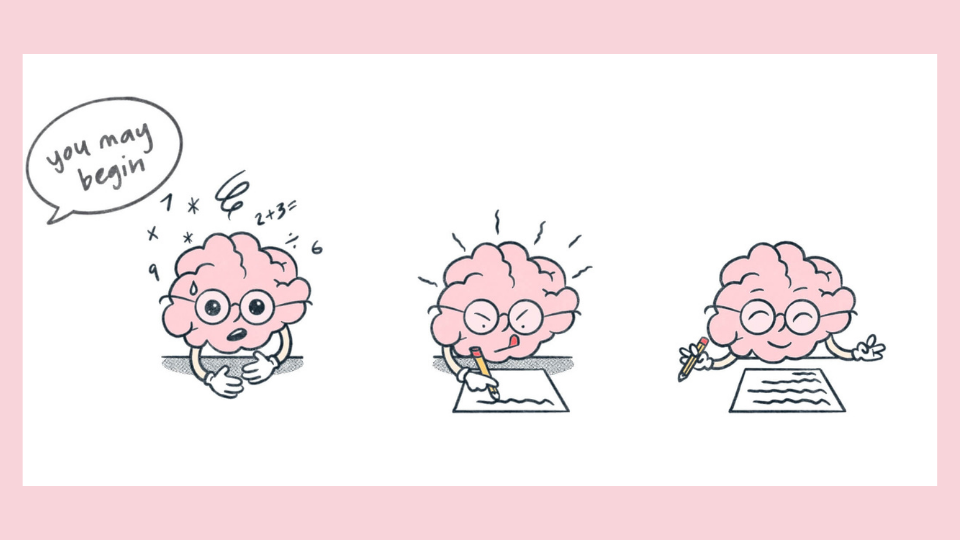Edition: January 22nd, 2022
Curated by the Knowledge Team of ICS Career GPS

- Excerpts from article by Nir Eyal, published on medium.com
Though we strive to be productive all day every day, unexpected life events inevitably get in our way. Sooner or later, a personal issue or some other event outside your control is bound to keep you from operating at full capacity. Whether in your personal or work domain, you need to be ready to roll with whatever distraction comes your way.
While we can’t be “on” all the time, we must still find ways to remain calm and focused.
But how are you supposed to manage distraction when there’s so much weighing on your mind? A daily morning brain dump may be just the solution you’re looking for.
The Real Cause of Distraction
First, we need to start with the underlying cause of most distractions.
Turns out the reason we tend to get distracted has more to do with what’s going on inside of us rather than in the world around us.
We need to deal with our desire to escape discomfort, the real source of nearly all our distractions.
Internal Triggers
- An “internal trigger” is an uncomfortable emotion we seek to escape and it’s the root of our tendency to go off track.
- It’s not the event itself that leads towards distraction, it’s what we do in response to how we feel about it that causes us to spend our time in ways we later regret.
- Thus, we must start by examining the internal triggers that lead us away from what we plan to do.
- To break the vicious cycle of distraction, it’s important to have an arsenal of tools that enable us to deal with that discomfort in a healthier manner.
- That way, we’re ready to face the emotional discomfort that can lead us astray.
- Journaling can help us identify those internal triggers so we can do something about them. It’s a powerful tool for helping you stay focused rather than keeping your emotions bottled up.
Journaling Improves Focus
Journaling has repeatedly shown to be a valuable tool for managing stress and anxiety. One study found that expressive writing diminishes intrusive thoughts about negative events and, therefore, frees the mind for productive mental activities.
For most minor life problems, something as simple as writing about the problem for 20 minutes can yield important results – better physical and mental health as well as improved cognitive abilities.
Adriel Boals
If you’re anxious or stressed about something in your life, focusing on that discomfort by journaling about it in the morning can help to short-circuit intrusive thoughts throughout the day.
That’s because one of the best tools for combatting distraction and stress is an entirely different belief about stress: befriending it rather than battling against it.
Likewise, journaling is a great method for proactively acknowledging your worries. It also gives you a chance to asses which problems are under your control and gives you time to form an action plan.
Every morning for a short period, write about your internal triggers and frustration in a journal; explore those negative feelings with curiosity instead of contempt.
Tips for Starting a Journaling Routine
- It’s not easy to build a new routine. To start, you have to incorporate the behaviour you want into your day.
- That necessitates making time for journaling in your packed calendar.
- While you are journaling, make sure to curtail any external triggers, the cues in your environment that may lead to distraction, such as social media notifications.
- That means you should journal before you turn on your phone or computer — or install apps on your devices that block distracting feeds and websites.
- You might also thwart interruptions from your family or roommates by wearing a “concentration crown” or making some sort of signal that they should leave you be.
Think you might need a little more motivation to start a daily journaling routine?
- If you like journaling and just need some encouragement, think of journaling as your Minimum Enjoyable Action (MEA).
- MEA is a simple, small, enjoyable behaviour that brings you on a journey you want to take, such as a journey toward feeling more calm and centred every day.
- Track your MEA for both positive reinforcement and to help it evolve into a routine.
- If you need more of a push toward journaling, try making an accountability pact with a friend.
You can’t eliminate the stressors in your life. But you do have the power to limit their influence. By making time to brain dump the internal triggers in your life, you take an important step towards better mental health.
….
Education & Career Trends: 6 Big Digital Trends to Watch in 2022
(Disclaimer: The opinions expressed in the article mentioned above are those of the author(s). They do not purport to reflect the opinions or views of ICS Career GPS or its staff.)




One Reply to “Education Trends: How a Morning Brain Dump Helps You Stay on Track All Day!”